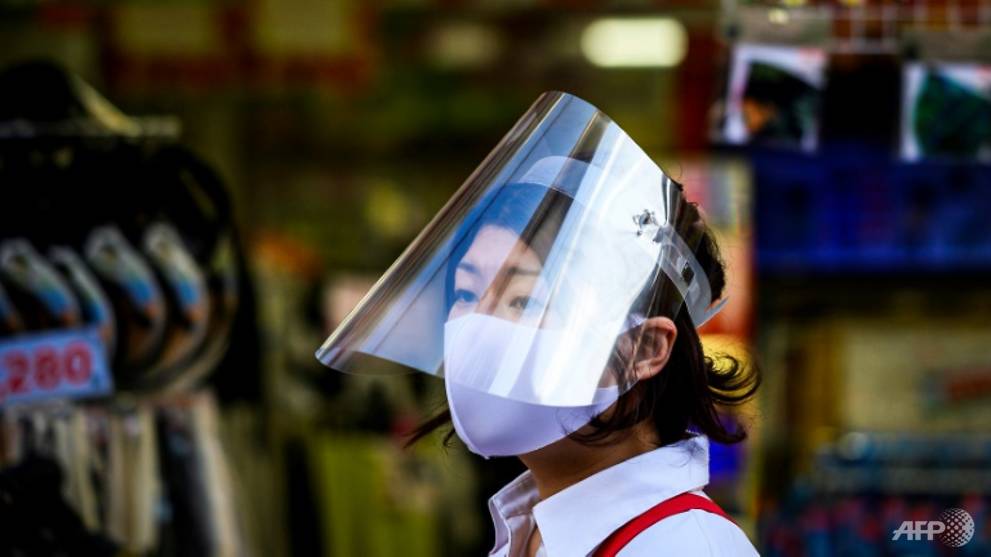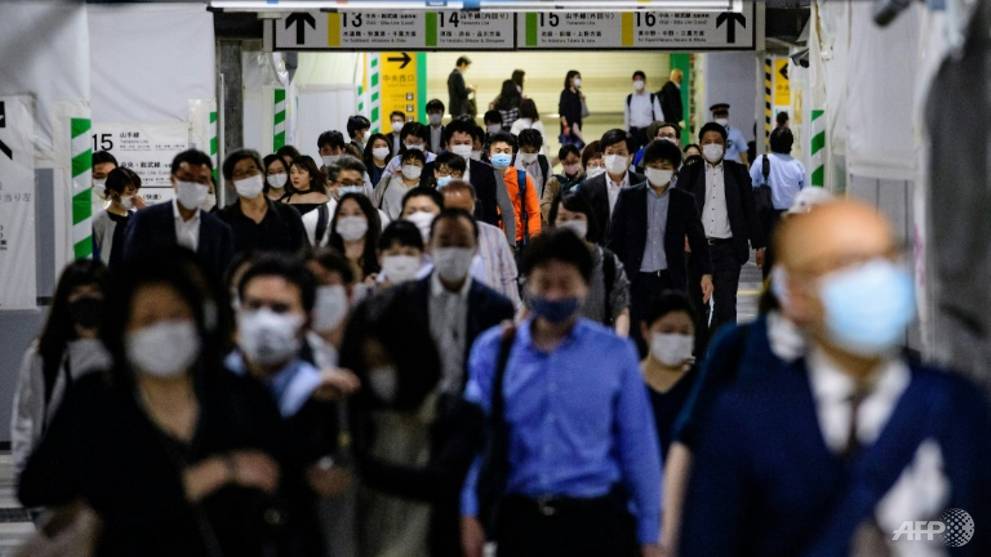
Japan lifts COVID-19 emergency but urges caution
TOKYO: Japan lifted a nationwide state of emergency over the coronavirus on Monday (May 25), gradually reopening the world's third-largest economy as government officials warned caution was still necessary to prevent another wave."We had very stringent criteria for lifting the state of emergency. We have judged that we have met this," Prime Minister Shinzo Abe told a nationally televised news conference.Compared with hard-hit areas in Europe, the United States, Russia and Brazil, Japan has been spared the worst of the pandemic, with 16,581 infections and 830 deaths.
But on Apr 7, with cases beginning to spike and fears for the country's health system, Abe declared a state of emergency for Tokyo and six other regions - later expanding it to cover the entire nation.Businesses and schools were urged to shut and people were asked to remain home, but Japan's lockdown was far softer than in other parts of the world and there was no punishment for those flouting the rules.Citizens largely heeded the orders, however, with most of Tokyo's famously packed streets falling quiet.
READ: Inside Japan's 'last-chance' hospital for COVID-19
The number of new infections has fallen from a peak of around 700 per day to just a few dozen nationally.The emergency was lifted for much of the country last week, but the government opted to wait before removing the measures in the capital and surrounding areas, as well as hard-hit northern Hokkaido."WE NEED TO BE VIGILANT"
Abe lauded Japan's success in flattening the curve, saying the country "was able to show the strength of the so-called Japan model".
But he warned that people would have to adapt to a "new normal" and continue to avoid the "three Cs" - closed spaces, crowded places and close contact."If we lower our guard, the infection will spread very rapidly ... we need to be vigilant," he said."We need to create a new lifestyle; from now on we need to change our way of thinking."

There does not appear to be a single clear reason why the pandemic has not hit Japan as hard as other comparable countries.High levels of hygiene and general health, the habit of removing shoes indoors, widespread mask usage, and bowing as a greeting rather than shaking hands or kissing: all have been advanced as possible reasons, but analysts agree there has been no silver bullet.Japan has come under fire for a relatively low level of testing with around 270,000 carried out - the lowest per capita rate in the group of seven advanced economies, according to Worldometer.But Japanese authorities insist that mass testing was never their strategy, as cases remained low enough to rely on aggressive contact tracing to contain clusters.Nevertheless, testing has been ramped up in recent weeks as authorities warn of a possible next wave of the virus that could overwhelm their previous strategy.
ECONOMIC, POLITICAL FALLOUTMedical facilities are also being boosted after horror stories of coronavirus victims being unable to find a suitable hospital bed.Although the human toll has been less severe than in other parts of the world, the economy - already struggling from the effects of natural disasters and a consumption tax hike - has suffered.Japan has plunged into its first recession since 2015, data published last week showed - shrinking by 0.9 per cent in the first quarter - and the spectre of deflation is looming after consumer prices in March logged their first drop in more than three years.In a bid to stem the damage, Abe has ordered a mass handout of 100,000 yen (US$930) per person, part of a stimulus package worth around $1 trillion.Coronavirus has also taken its toll politically, with polls showing support for Abe falling rapidly. A recent survey for the Asahi Shimbun suggested his backing had dropped to 29 per cent, the lowest since he took office in 2012.Abe performed a rare U-turn on the cash handouts - initially announcing an entirely different policy - and is seen to have bungled another signature move to distribute masks to every household, which attracted widespread mockery.
BOOKMARK THIS: Our comprehensive coverage of the coronavirus outbreak and its developments
Download our app or subscribe to our Telegram channel for the latest updates on the coronavirus outbreak: https://cna.asia/telegram